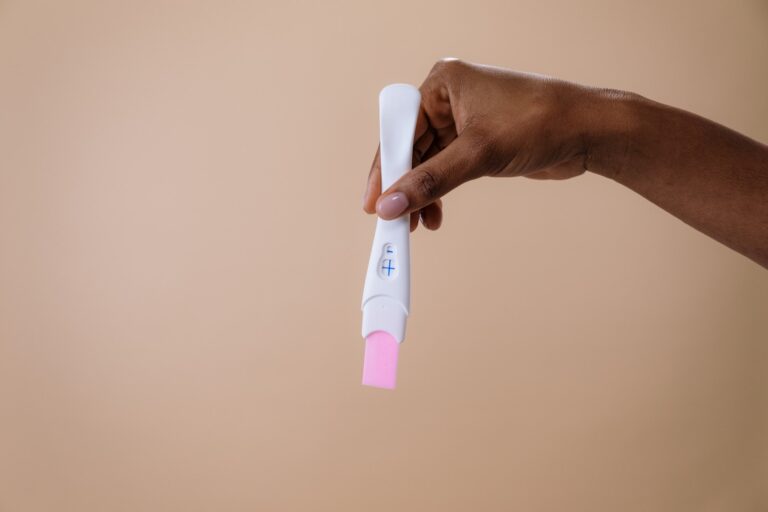If you have unprotected sex and are worried that you might be pregnant, there are some important things to keep in mind. Most pregnancy tests are most accurate on or around the first day of a missed period, which is also around the time that you would have ovulated.
It is recommended to wait at least 21 days after ovulation before taking a test, so that you can get the most accurate results possible.
Urine Tests
The average menstrual cycle is 28 days long, with ovulation occurring around day 14. However, every woman’s menstrual cycle is different. It can be difficult to know exactly when you ovulated, and it’s even more challenging for women who use birth control and have an irregular menstrual cycle to figure out when they should take a pregnancy test.
Pregnancy tests detect a hormone called human chorionic gonadotropin, or hCG, in your urine. These hormones indicate that an egg has been fertilized and implanted in the uterus, explains OB-GYN Mary Jane Minkin.
Generally, you should wait until after you miss your period to take a home pregnancy test because hCG levels are typically higher and more accurate at that time. Taking a test too early can result in a false negative, which can be stressful for women who suspect they may be pregnant. It’s also important to note that sperm can live in your body for up to five days after ejaculation, which could influence a pregnancy test result even when unprotected sex has not occurred, so you should never assume you are not pregnant based on the results of a urine test.
When you take a urine test, try to do so first thing in the morning as this will give you the most accurate results. It’s also important that the sample is not too large or too small, which can distort your results. In addition to pregnancy tests, you can also have a urine sample tested for the presence of drugs or sexually transmitted infections (STIs) like chlamydia and gonorrhoea. These tests are done at home or in a doctor’s office and require that you collect a sample in a cup.
Blood Tests
While it’s understandable to want to know as soon as possible if you’re pregnant, the fact is that pregnancy tests are most accurate when conducted after a missed period. This is because a pregnancy test works by detecting the hormone hCG, which is only produced once an egg has successfully implanted in the uterus (typically about six to 12 days after ovulation).
In other words, you need to be a certain stage of your cycle—or at least wait until your next period is due—to get accurate results. That’s why many experts recommend following the “two weeks after unprotected sex” rule of thumb, says Halle Tecco, founder and chief women’s health officer at Natalist, an online retailer that sells ovulation and pregnancy tests, morning-after pills, and other sexual health products.
Home pregnancy tests are typically accurate from the first day of a missed period, and a blood test done by a healthcare provider can give you results as early as three weeks after unprotected sex. Of course, it’s important to remember that even if you take a pregnancy test and it shows that you are not pregnant, this doesn’t necessarily mean your period will never come—there are lots of reasons why a period might delay or skip. Those include physical conditions, stress, and even certain medications.
Ultrasound Scan
Even though at-home pregnancy tests are more accurate than ever before, it still takes time for the test to show the results. This depends on when sperm enter the body, when ovulation occurs in the female partner, and how long it takes for a fertilized egg to implant in the wall of the uterus. During this process, the hormone hCG is released by the body and can be detected in the urine or blood.
A typical menstrual cycle lasts 28 days, and ovulation happens around day 14. However, women’s cycles vary and ovulation can happen anywhere between two weeks before and two weeks after unprotected sex. Since this makes it hard to correlate ovulation with conception, it’s best to wait until your missed period or 21 days after having sex to take a pregnancy test.
Some home pregnancy tests can detect a pregnancy hormone as early as 8 days after unprotected sex, but this is not always accurate. For the most accurate results, test first thing in the morning when the level of hCG is highest. Another option is to visit a health clinic for the insertion of an IUD, like ELLA or Paragard, which can prevent pregnancy up to 5 days after unprotected sex. Oral emergency contraceptives, such as Plan B or generic version of the pill, can also be taken up to five days after unprotected sex to reduce the risk of pregnancy.
Abortion
If you’ve had unprotected sex, you should take a pregnancy test as soon as possible to see if you are pregnant. The timing of a pregnancy test can be difficult to determine as it will depend on when you had sexual intercourse, your menstrual cycle, and what method of contraception you used (or didn’t use). For this reason, we recommend taking a home pregnancy test two weeks after potential conception to get accurate results.
Pregnancy tests work by detecting a hormone called human chorionic gonadotropin (hCG) in your urine or blood. HCG is produced when a fertilized egg attaches to the lining of your uterus, which happens six to 12 days after you ovulate. If you’ve had sex during this window, it is likely that the sperm and egg successfully implanted. However, the hCG from the fertilized egg won’t be detectable on a pregnancy test until after implantation has occurred.
If you have sex during the fertile window, it is important to seek out emergency contraception or abortion options immediately. The Ella morning-after pill or the Paragard IUD are both great options that prevent pregnancy up to five days after unprotected sex. If you are further along in the pregnancy, a clinic can give you prescriptions for medication to induce an abortion, such as misoprostol and methotrexate. These medications are typically taken over the course of two to three days, and can be performed at a clinic or a doctor’s office.
See Also:



